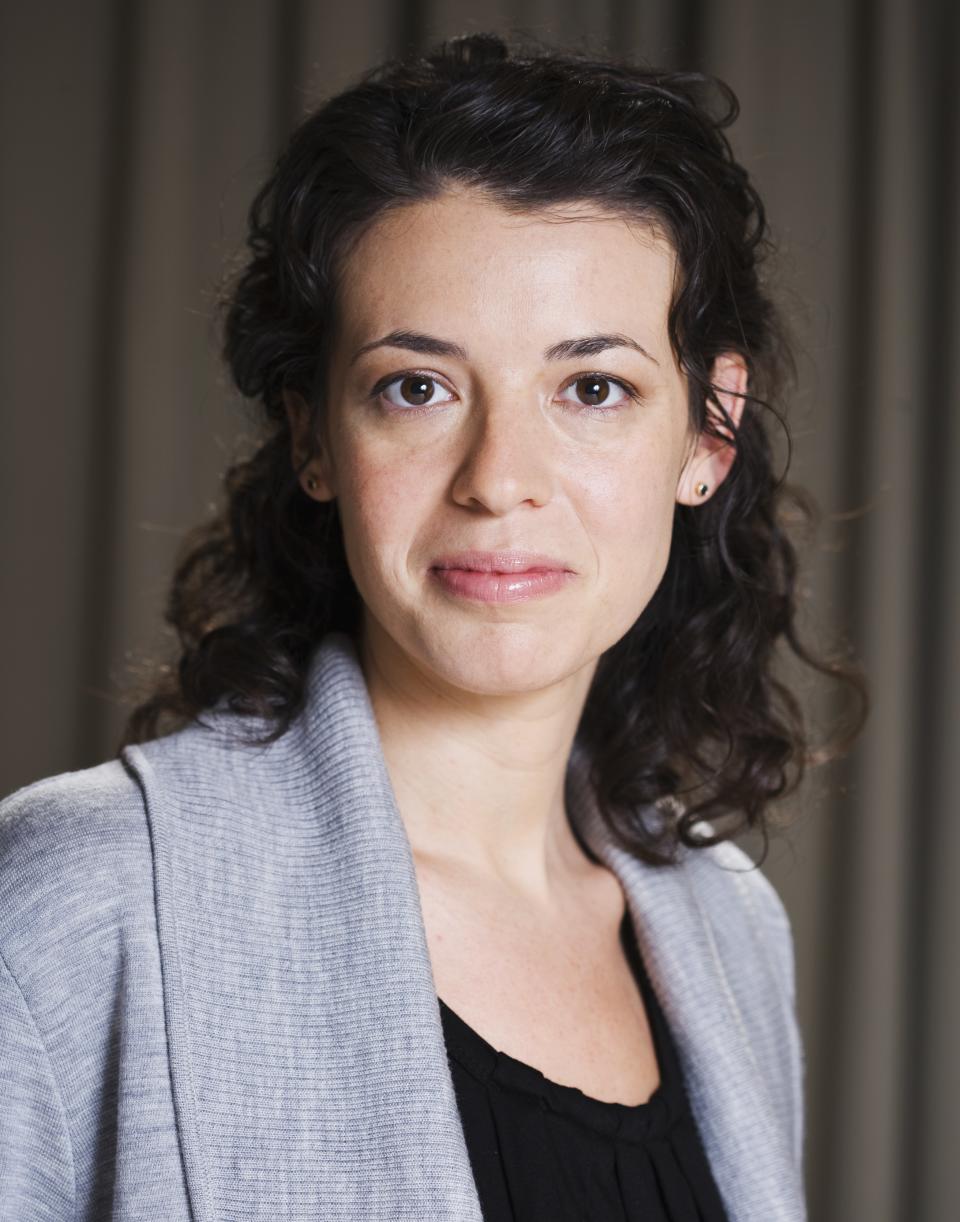A playwright on the rise: Quiara Alegria Hudes
NEW YORK (AP) — It's a virtual law, maybe even a commandment, of all literature classes: Write what you know. Don't forget to write what you know. Playwright Quiara Alegria Hudes agrees — up to a point.
Hudes, a rising, genre-shaking talent at just 35, has no qualms about setting a scene in Jordan or Japan — places she's never visited — as long as they are honest. In fact, it might even be better to get some distance.
"For me it's almost easier to capture truths that I don't have firsthand experience with," she says. "Sometimes I feel you can see things more clearly from the outside."
A whole lot of people agree: Hudes last year joined Eugene O'Neill, Tennessee Williams and Arthur Miller as a Pulitzer Prize drama winner.
The play that earned her that honor — "Water by the Spoonful" — made its New York debut this week and received high praise for its inventiveness and scope. It's a meditation about recovery and forgiveness that takes the audience from a cybercafe in Japan to a waterfall in Puerto Rico and a funeral home in Philadelphia.
"I like putting these disparate cultural elements together and see what happens," says Hudes, speaking before a performance at Second Stage Theatre, the off-Broadway company that is producing "Water by the Spoonful."
The play is the second in a trilogy about Elliot Ortiz, a former Marine injured in Iraq who was also the focus of "Elliot, A Soldier's Fugue," a four-character, three-generational sliver of a play that debuted in 2006 in a small theater downtown. It was a Pulitzer finalist.
Hudes went on to collaborate on the Tony Award-winning musical "In the Heights" with Lin-Manuel Miranda. She also wrote "26 Miles," a play about a transformative car trip taken by a mother and daughter.
But Elliot and his story — loosely based on a cousin — pulled her back. Not only the coming-of-age drama but also her technique of mixing unexpected music into the story, in this case a Johann Sebastian Bach fugue.
"I kind of missed what I had started to explore," she says. "It just felt like my most distinctive and 'me' work yet. I was hungry to go back and go, 'What was I doing there?' Not to imitate it because you don't want to just be turning the same page but to think about how I could build on that."
The result was "Water by the Spoonful," which has overlapping narratives, uses online bulletin boards, crosses international boundaries, delves into crack addiction and adds John Coltrane to the mix. Davis McCallum, its director, read a rough draft while on an overnight flight and was riveted.
"I closed my computer and I went, 'Wow. She's crossing into a whole new territory as a writer.' Not to take anything away from the first play, which I think is a brilliant piece of writing, but it's a tight, perfect, small diamond of a play, whereas this play is just huge," he says. "It just has huge scope and great ambition and huge, huge heart."
Hudes, who is half-Jewish and half-Puerto Rican, got her bachelor's in music from Yale University and a master's in playwriting from Brown University, where she studied with Paula Vogel, who wrote "How I Learned to Drive." She grew up in Philadelphia and sets many of her plays in that multicultural city.
"I'm very culturally curious, I've always been," she says. "I was the one who was always most comfortable shifting between worlds and shifting between cultures. I would get restless if I was sitting in one place too long."
She found out she'd won the Pulitzer while checking her phone during a break teaching undergraduates at Wesleyan University. "It was the last thing I was expecting," she says.
At the same time, the award brings pressure. "It created these expectations and so I don't know that people are coming to see this play with the same sort of expectations they would have if they had just not heard of me or this play," she says. "So it's a little scary but you know I just have to return to the work and just kind of know myself and my place in the world."
The third play in her trilogy, "The Happiest Song Plays Last," is slated to make its world premiere in April at The Goodman Theatre in Chicago. Hudes says it's more of a love story, and will push the envelope even more by having a musician onstage playing Puerto Rican folk songs.
Half of it takes place in Philadelphia and half in Jordan, where Elliot has ended up. Hudes was writing during the anti-Hosni Mubarak protests in Cairo and decided to incorporate that into her play. She relies on extensive research and interviews to make sure the details are right.
Hudes also just put the finishing touches on a new work — her first post-trilogy play, which is set in a Philly bar and traces seven characters over 25 years. A pianist onstage will mark the changes in time.
"I knew I wanted to write something that felt lighter and freer. Much lighter and freer," she says. "Not so heavy and so I just started writing about this bar (where) I used to hang out when I was a kid."
Then there is her more immediate concern: a birth. She and her husband, a public defender, are expecting the arrival of a son in early February, their second child following a daughter born almost 6 years ago. While being a mother again is a challenge, there is an upside.
"I do think it's prolonging our youth a little bit. That inevitable empty nest phase of our lives has been pushed back a little farther," she says. "I really look forward to that stage, but I still think I've extended my youth a little bit."
___
Online:
http://www.2st.com
___
Follow Mark Kennedy on Twitter at http://twitter.com/KennedyTwits


